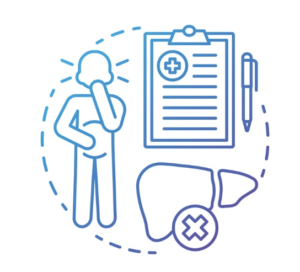Diet, Lifestyle and Your Liver
The pressure to look and be perfect in today’s day and age is soul-crushing, a lot of young people find it hard to maintain a perfect body image alongside their studies/ profession. To achieve this idea of perfectionism, a common resort is dieting. Popular diets such as the keto -diet or the ketogenic diet, have exploded all over the internet. It has been endorsed by public figures, dieticians and has a popular image because of its quick results. That being said, it is important to consider, is it all really worth the hype? Dr. Ninad Deshmukh Best Organ Transplant surgeon in Pune guide on the how-to maintain co-relation between diet and lifestyle for a healthy liver.
An ‘easy way out’, might seem the solution to your problems right now, but what happens ten years down the line when you are left with health complications in your early 20s and 30s trying to figure out, what it was that you did so wrong?
The answer may lie in these crash diets. It is important to understand your body and its nutritional needs before subjecting it to any diet. Having a goal set in mind that you want to achieve at the end of your diet is a good start, but designing your diet based on your needs, likes and keeping it balanced should be much more of a priority.

What are we doing wrong?
Trying to chase the ultimate dream of weight loss comes at a heavy price to most people, especially to women. When you follow crash diets and starve your body of the right kind of nutrients it leads to adverse effects such as irregularity in hormone levels, PCOD (poly cystic ovary disease: many fluid filled sacs form in ovaries due to
hormonal imbalance), rapid weight gain and much more. Men aren’t spared either, they face a lot of these problems too.
A very important health hazard is liver diseases. Unhealthy diets lead to development of non-alcoholic fatty liver disease (NAFLD)- deposition of fat in the liver which causes liver damage. One of the important things to realize is that there are no symptoms in initial stages. Symptoms only appear in the later stages of fatty liver disease when there is considerable irreversible liver damage. Merely counting calories does not seal the deal. You need to make sure the food you consume is healthy and fulfills the nutritional requirements of your body. Processed foods have high trans-fat, saturated fatty acids and high fructose levels. All pushing you one step closer to a less healthy liver.
Other problems as a result of unhealthy diets are:
- Gall bladder stone
- Weaker immune system
- Dehydration
- Low energy levels and lethargy
How is my liver affected?

Diet and calorific intake largely affect non-alcoholic fatty liver disease (NAFLD).
- Intake of high fructose corn syrup foods, saturated fats and trans fatty foods worsen NAFLD.
- Diets such as the keto-diet increase the risk of inducing hyperlipidemia (increasing fat level in blood) and increased risk of fatty liver disease.
- Intake of high fructose corn syrup foods (a component of most protein shakes and powders), saturated fats and trans fatty foods worsen NAFLD.
One may ask, why is this important?
Problems like NAFLD are serious and can affect you with no prior warning until one fine day your liver gives up. The liver is a vital organ in our body, taking care of it is important, complications in the liver are hazardous and the damage caused is often irreparable. Sure the liver is important, but if you are young, you have nothing to worry about right? Here’s what the experts have to say:
One day as I was seeing patients, a young gentleman walked in to see me. He was in his thirties, working as a software engineer in a reputed company. He had done an Ultrasound or USG of his abdomen and the report said that he was suffering from a fatty liver. Doctor I don’t have jaundice or any other symptoms, so how can I have fatty liver disease? On further enquiry I noticed that he was leading a sedentary lifestyle with no exercises, eating an unhealthy diet with lots of junk food. His weight had also been increasing over the last few years. This is a typical story I see in many patients suffering from fatty liver disease. This story often ends up with them getting worried and asking me, Doctor what should I do?
What can be done?
Maintaining a healthy diet and sustainable weight loss is achievable. It may not be as quick as the crash diets but it will give you long lasting effects and a much healthier body that will last long.
- Figure out what the healthy weigh and fat percentage is for your age, height and ethnicity.
- Consume foods rich in probiotics, vegetable proteins, omega-3 fatty acids.
- Avoid consumption of simple carbs such as through processed dairy foods (ice-creams), soft drinks, concentrated fruit syrups, raw sugar, etc.
- Drink ample amounts of water throughout the day and exercise regularly.
- Consume whole grains, dry fruits and nuts.


